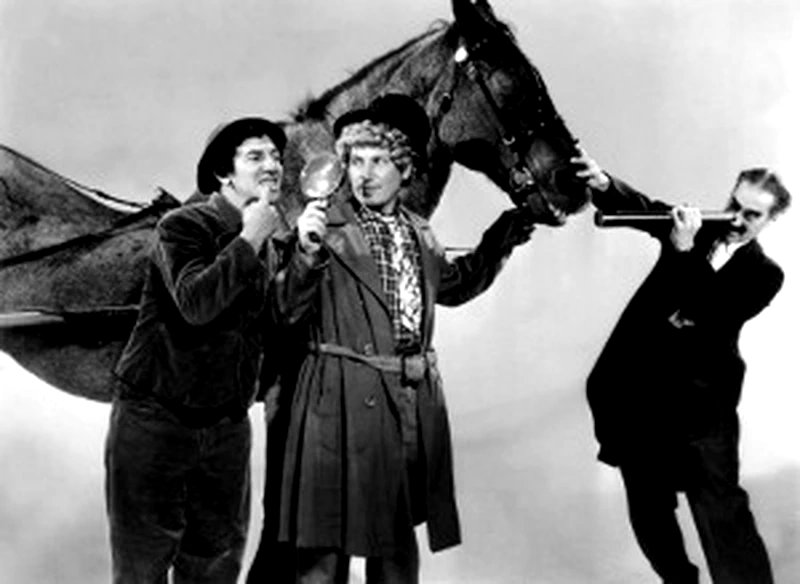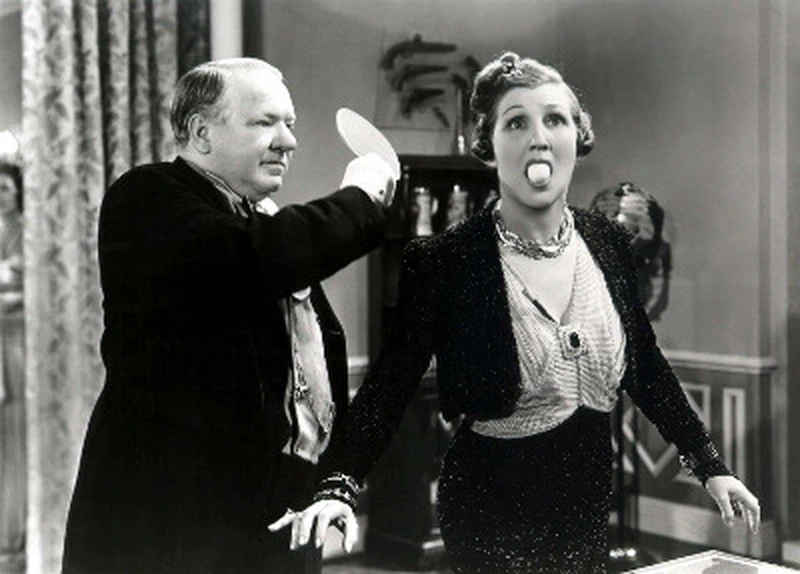When Brian Marick finished his keynote in Madrid (XP2011) he concluded with “keep agile weird”. What he meant by that was that agile was a form of resistance and that it was therefore necessary to keep this strangeness relative to the outside world, an indicator of its good health. This phrase resonated differently with me and I tried to express this to Brian Marick in the hallways just after his talk. In fact this strangeness made me think of something that I’ve always defended and loved: the absurd, and the imbalance that it creates. I tried to explain to him that his phrase made me think of the Monty Python, it’s absurd, it’s strange, it’s unbalanced, the imbalance produces a force that enables change. That’s my mojo. Well, he vaguely nodded to be able to quickly slip away toward the buffet.

Nevertheless I return today to this concept because one of my readings: dynamique des groupes restreints by Anzieu & Martin (1968) , gives me food for thought.
If you deploy agile within an organization you know that change management, the success of change, is a key factor. No sustainability for your agile action if the change isn’t global. The real challenge is therefore to provoke lasting change. One of the techniques is thus to unbalance the habits in place. This imbalance produces a force that we use to provoke change. The imbalance must be strong enough to avoid returning to the initial position. The imbalance must not be too violent, at the risk of being rejected (and you along with it).
It was K. Lewin who conducted studies in the mid-20th century on this subject tell us Anzieu & Martin in Dynamique des groupes restreints. Lewin’s research explains that (social) change. Lewin mentions a margin of neighborhood: that is to say a space in which forces modify the group, society, but without provoking a change: a margin of fluctuation. To introduce change one must introduce an opposing force greater than the initial resistance (whose goal is to bring balance back to the previous level), that crosses this margin of neighborhood. Lewin explains: By gradually decrystallizing habits through non-directive discussion methods, up to the breaking point, shock, where a different recrystallization can occur.
In 1943 Lewin conducted an experiment to try to convince several groups of people to change their eating habits (to eat offal). He used several means to try to bring about change. First lesson: the method that works best is the one where the actors’ involvement is highest (the one where discussions among the actors are necessary) and where the actors are free in their decision. the actors must convince themselves or are convinced by peers. Second lesson: decision-making in a group leads to action more than individual decision-making. Groups must therefore be changed and not individuals.
I return to the stages mentioned by Lewin on managing change: decrystallization, change, crystallization. Unsurprisingly the imbalance phase brings with it tension. Two forces come into conflict: resistance to change and imbalance. Understand therefore that often this tension is necessary, but that it must not be allowed to break.
Small aside and very crudely: Bergson, Kant, Freud or others believe that laughter comes from an imbalance in our internal forces.

We expect something and suddenly something else happens: a dignified man walks, but he slips on a banana peel. In this case the greater the variation between the dignity and ridiculousness of the fall, the greater the newly available force will be, laughter comes from this surplus of force, of energy. Another example: we expect something and surprise something else arrives: this gap generates energy that can pour out in laughter (depending on the situations). This is often the case with comic absurdity (Monty Python, Marx Brothers, WC Fields or others, etc.), we expect something and something very different arrives (a ministry of stupid procedures for example: the distance between the idea of a “normal” ministry and the idea of one dedicated to stupid procedures: there’s a gap, a gap, a space). From this space is born an energy that dissipates in laughter.
In my case I try to use this theory or concept in my work, I must generate this imbalance, this gap between a reality, and the one toward which we must move. Highlighting the absurdity of situations helps me: this gap must be made visible to everyone because as expressed above: it’s not me who will convince, but the actors who will convince themselves (or not). Finally if in addition I can use this imbalance to make things comic this allows me to reduce this tension related to change management mentioned above. I was delighted during this discussion with one of my clients: one of his projects wasn’t moving forward at all. I come for news:
-
The burndown indicates that the project has been stagnant for quite a while, what’s happening?
-
We have many other priorities, and this project is the last of our priorities.
-
That’s completely understandable, wouldn’t it be best to suspend this project until the priority things are completed?
-
Oh no, it’s unthinkable not to work on this project!
This brings me to a second discussion launched by Oana J. Do we need “hero” agile coaches, “bulldozers” (someone told me that one day…), in a very consultant mode, or “fairy” (faerie) or “djinn” (if fairy offends your masculinity) agile coaches, meaning those who whisper in people’s ears and let their ideas blossom so they reappear as if by magic (hence the fairies). We all dream of being “djinn, fairy”, but in reality we’re often “hero”: time, deadlines, and also often our own nature compel us to be.
To summarize: an imbalance to bring change. Beware this imbalance will bring its share of tensions, they can be lessened by a comic effect (I say this without laughing). It’s a group that you’re going to change, not individuals. Change will occur if the group convinces itself or is convinced by its peers. It’s up to you to bring this reflection, here again laying bare the absurdity of a situation, of the gap brought about by change, is a way to raise awareness among the actors, to generate, to initiate this force toward change.
Either your watch has stopped or this article is finished*.
* adaptation of a phrase by Groucho Marx in A Day At The Race, I’m trying my hand at nonsense…